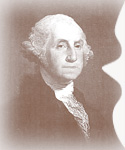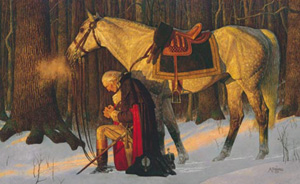 “Let us with caution indulge the supposition that morality can be maintained without religion. Whatever may be conceded to the influence of refined education on minds of peculiar structure, reason and experience both forbid us to expect that national morality can prevail in exclusion of religious principle.”
“Let us with caution indulge the supposition that morality can be maintained without religion. Whatever may be conceded to the influence of refined education on minds of peculiar structure, reason and experience both forbid us to expect that national morality can prevail in exclusion of religious principle.”
~ George Washington, from his Farewell Address, 1796 ~
As the Left progressively attempts to erase every vestige of God and religion from the public sphere, especially during the Christmas season, it’s critical to bear in mind that America’s founders firmly established our constitutional republic on Christian principles. Matt Spalding at Heritage’s Foundry, posted an article yesterday that serves as a timely reminder: Faith in America ~
…the American Founders recognized general moral precepts that are understandable by human reason and no less agreeable to faith in the form of a general revelation of creation. This morality common to both natural reason and divine revelation, usually termed natural law, is the philosophical ground of the American Founding.
From the perspective of religious faith, the basic principles of the Founding, at the level of political principles, were understood to be in essential agreement with the core precepts of the Bible. That this is the case can be seen throughout the many church sermons published from the founding era. While we have never been and should not try to become a nation defined by a particular or official religious denomination, we must never forget that, as the Supreme Court said in 1952 (and reiterated in 1963, and again in 1984), “We are a religious people whose institutions presuppose a Supreme Being.”
The health and strength of liberty depend on the principles, standards, and morals shared by nearly all religions. What the “separation of church and state” does is liberate America’s religions–in respect to their moral forms and teachings–to exercise unprecedented influence over private and public opinion by shaping citizens’ mores, cultivating their virtues, and in general, providing a pure and independent source of moral reasoning and authority. This is what Alexis de Tocqueville meant when he observed that even though religion “never mixes directly in the government of society,” it nevertheless determines the “habits of the heart” and is “the first of their political institutions.”
As we gather with our families to celebrate Christmas and Hanukkah, let us remember that our greatest blessing as Americans is the freedom to pursue our eternal duties to God and of religion to pursue freely its divine mission among men on earth.





